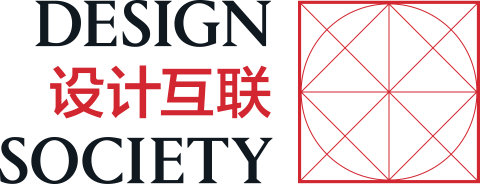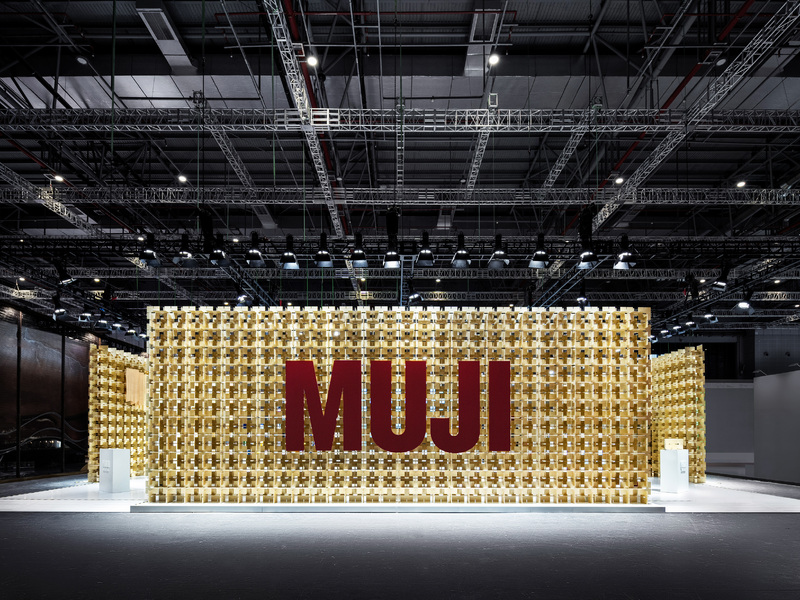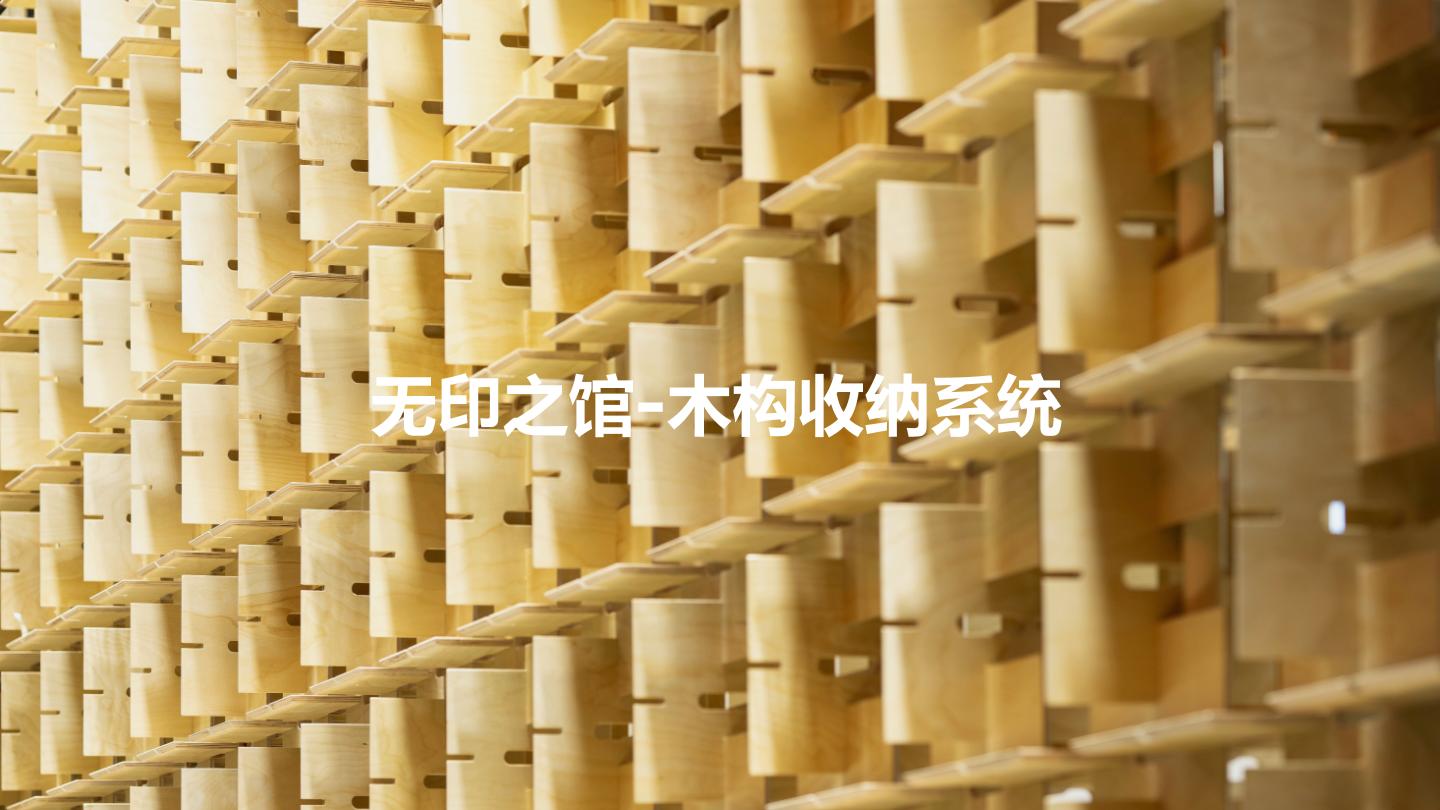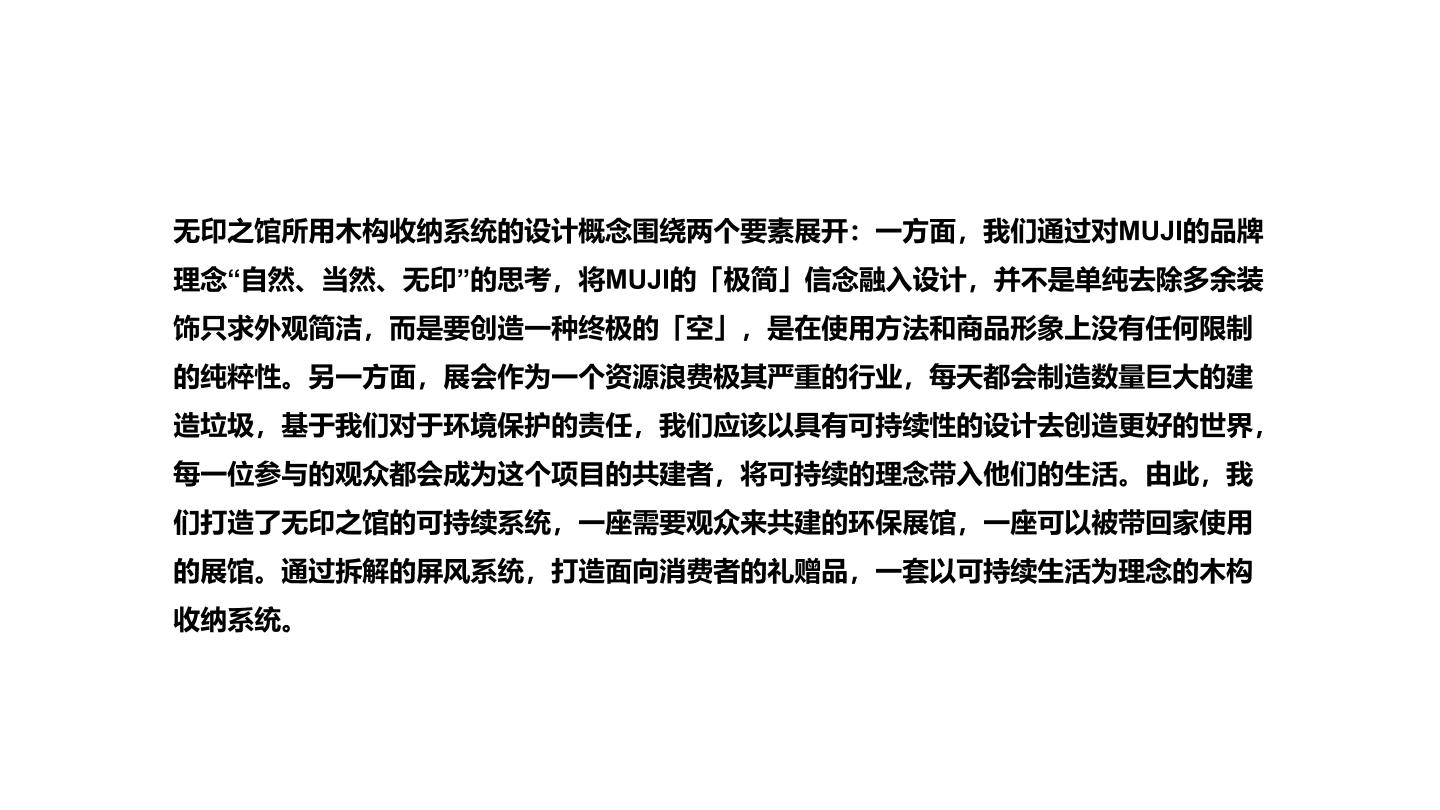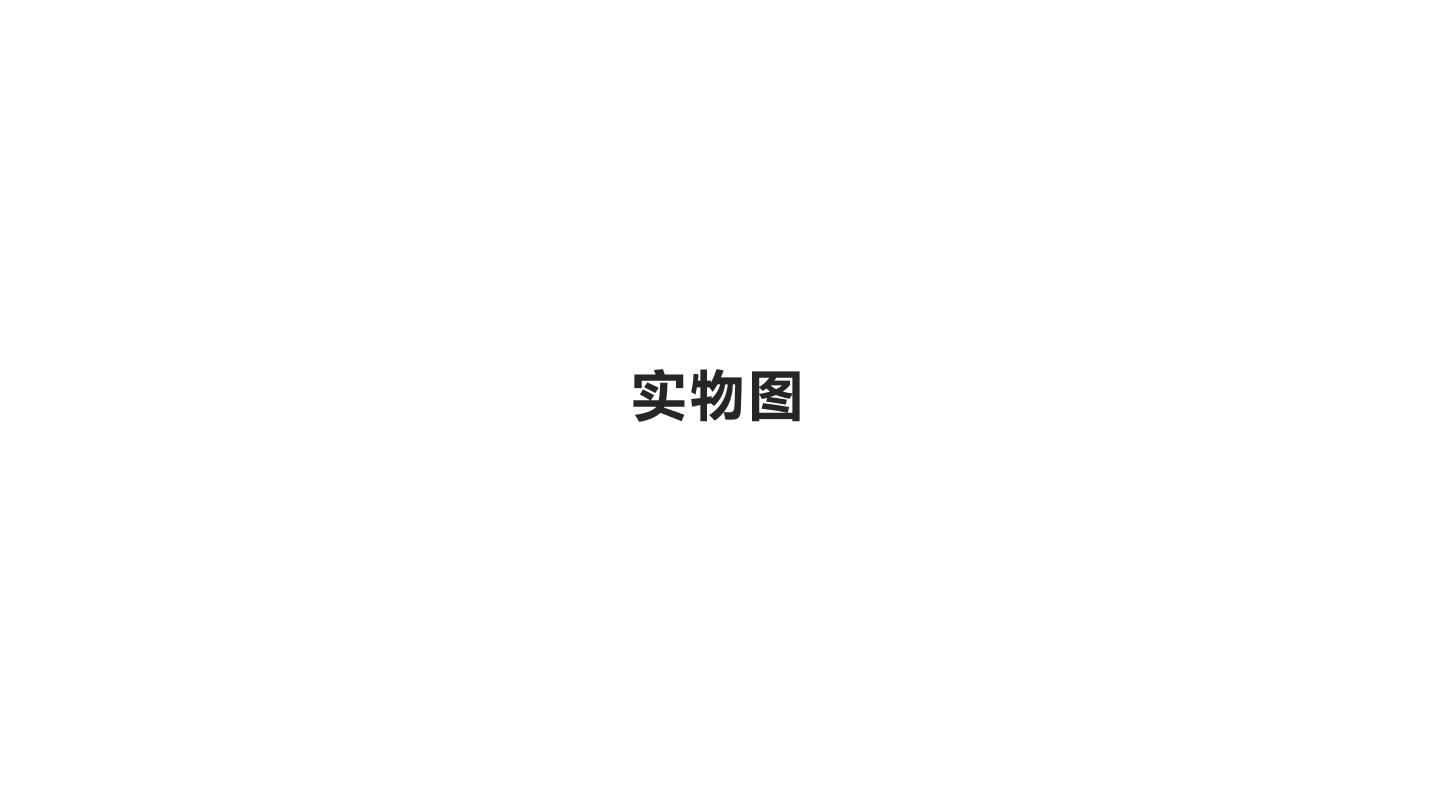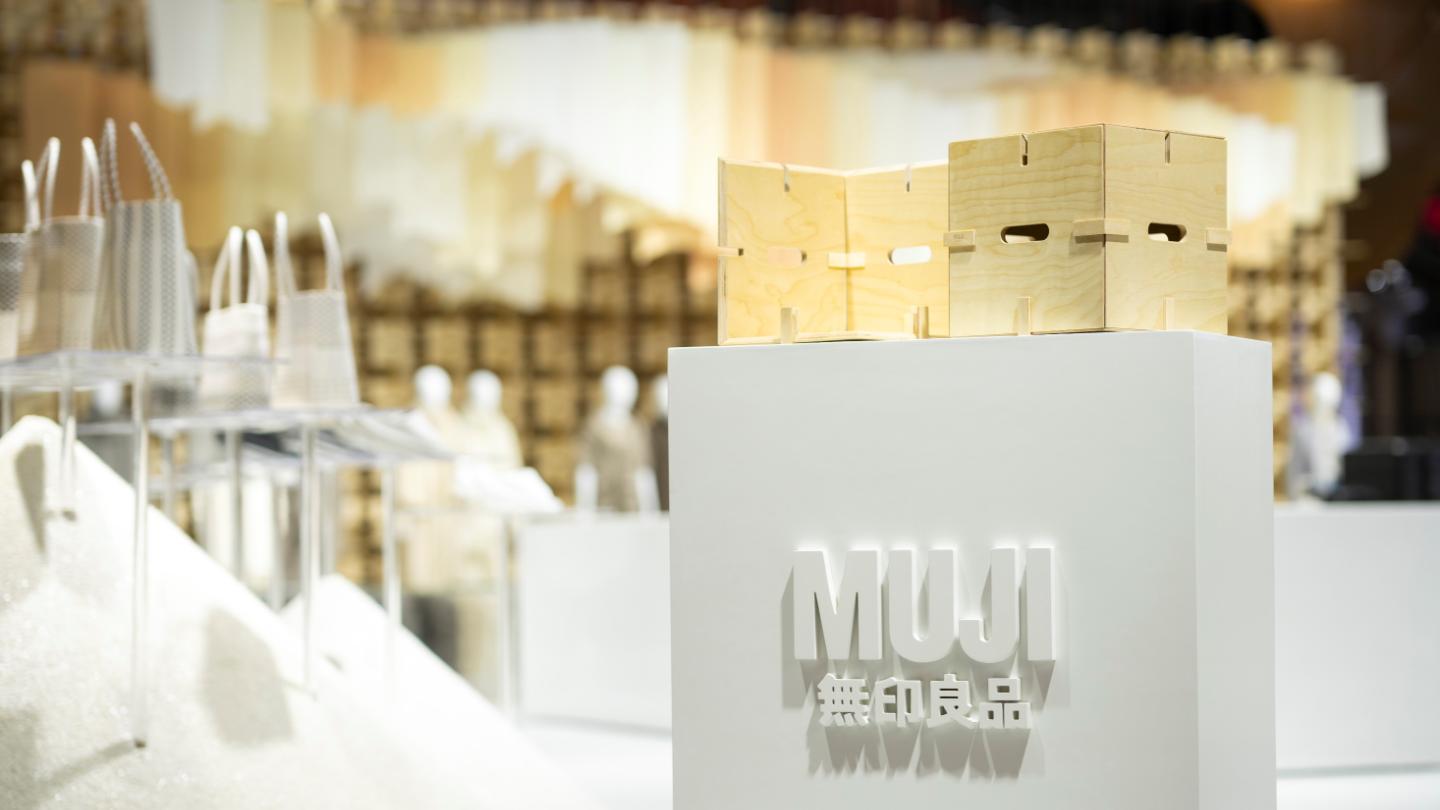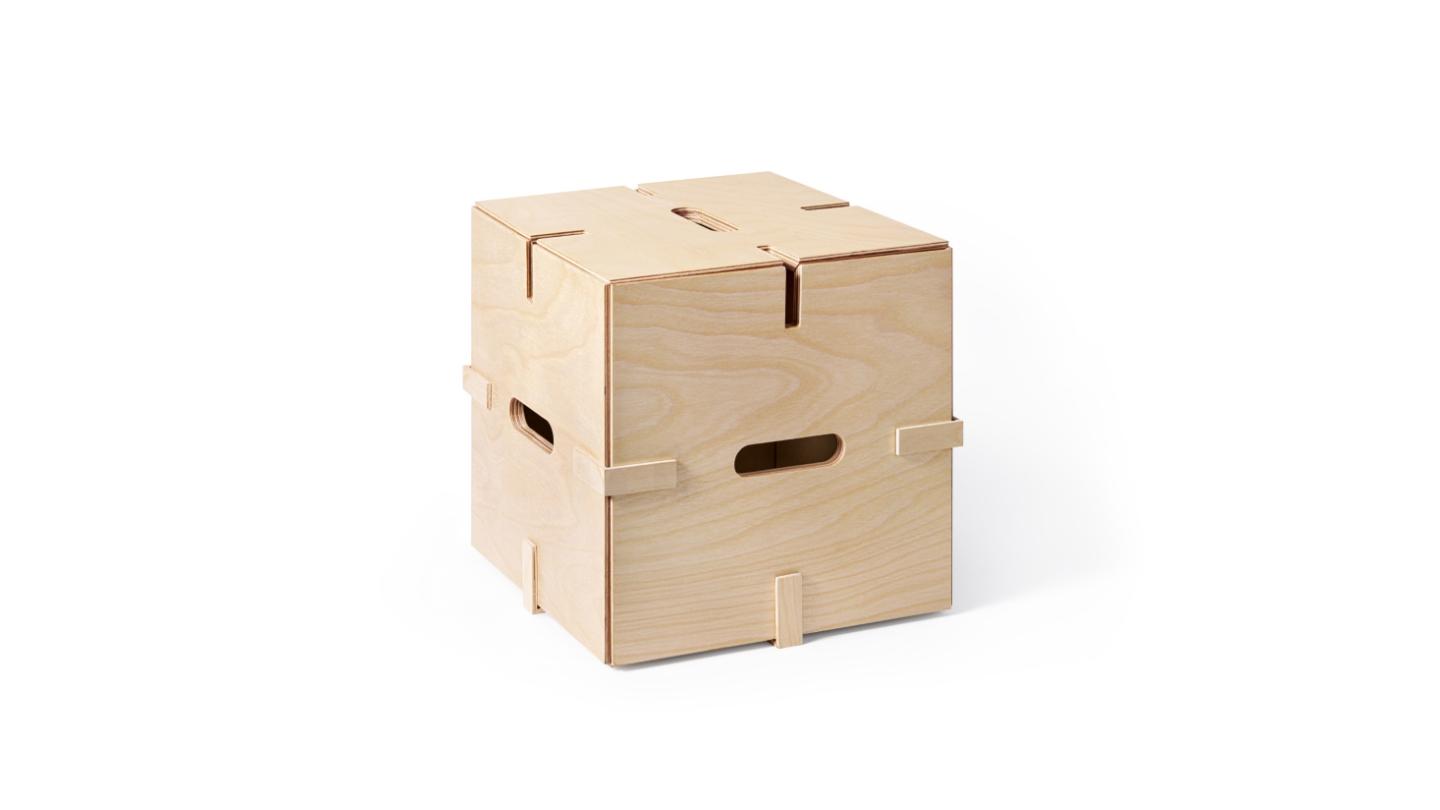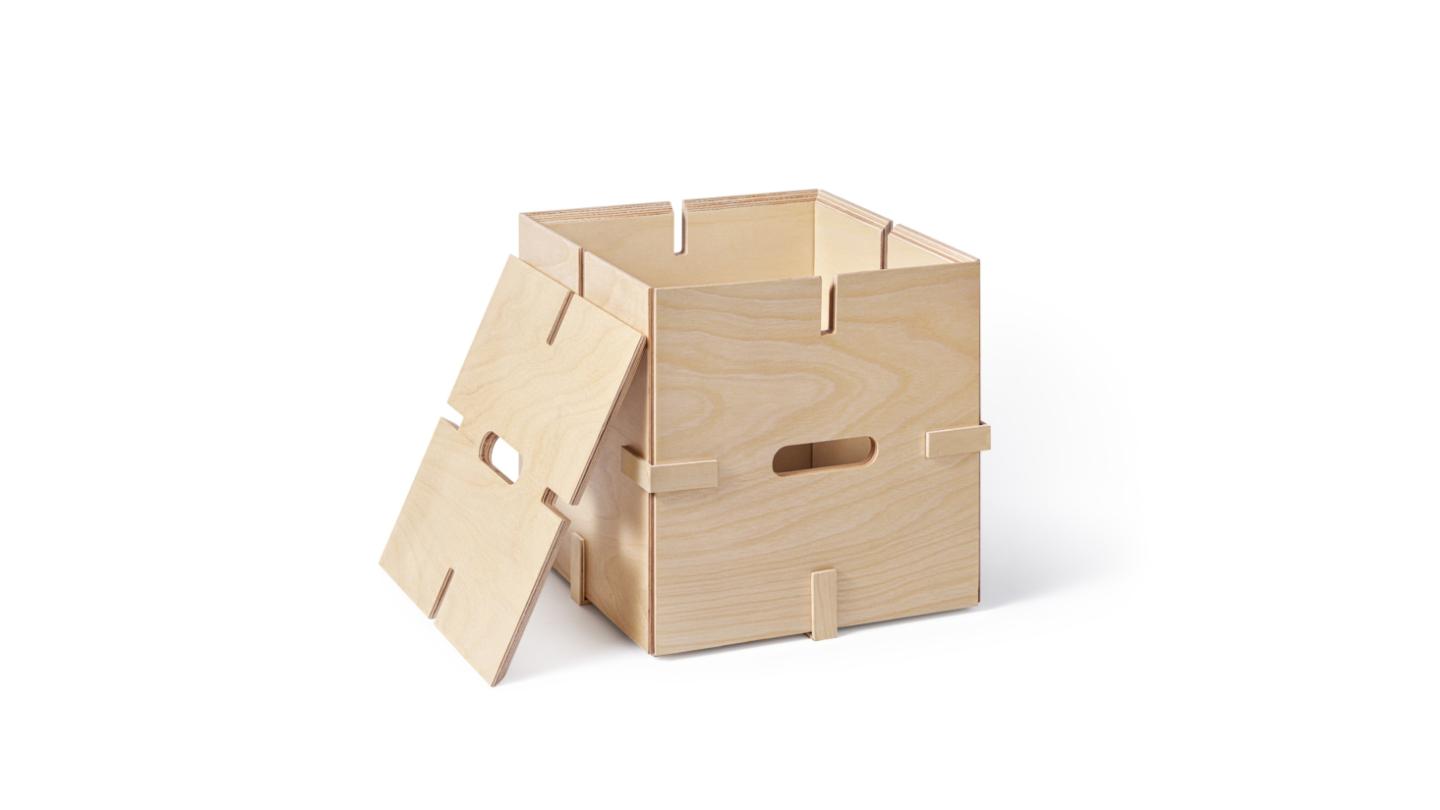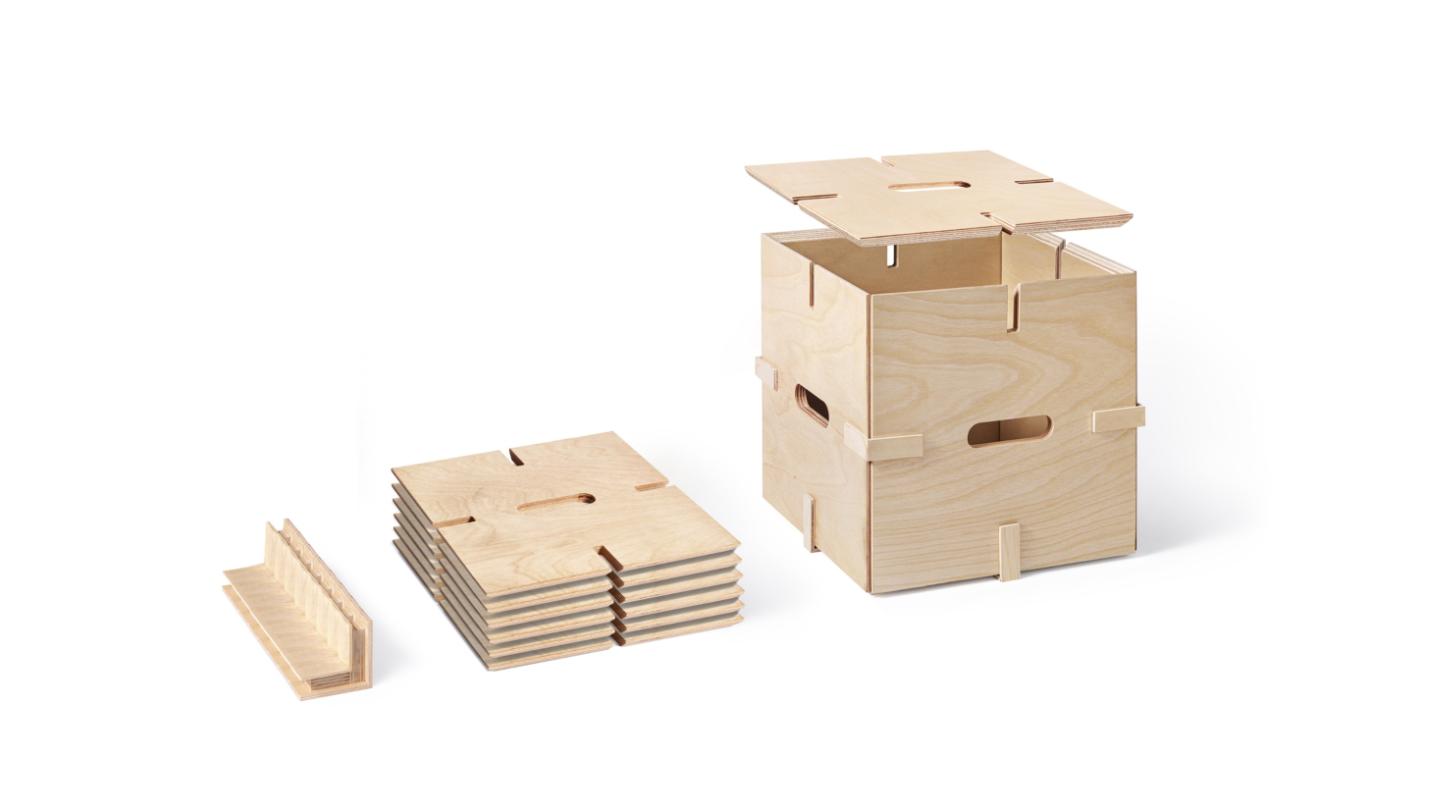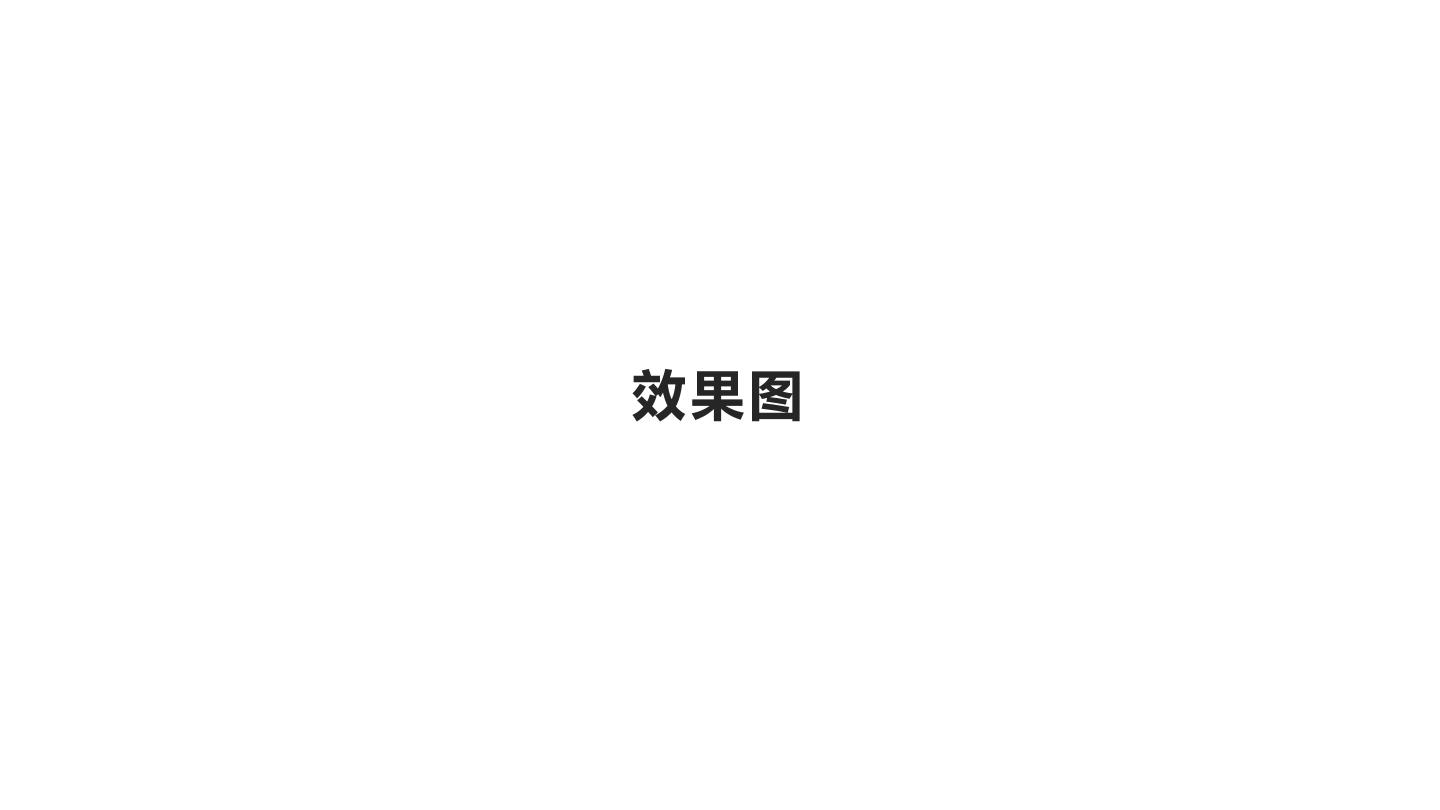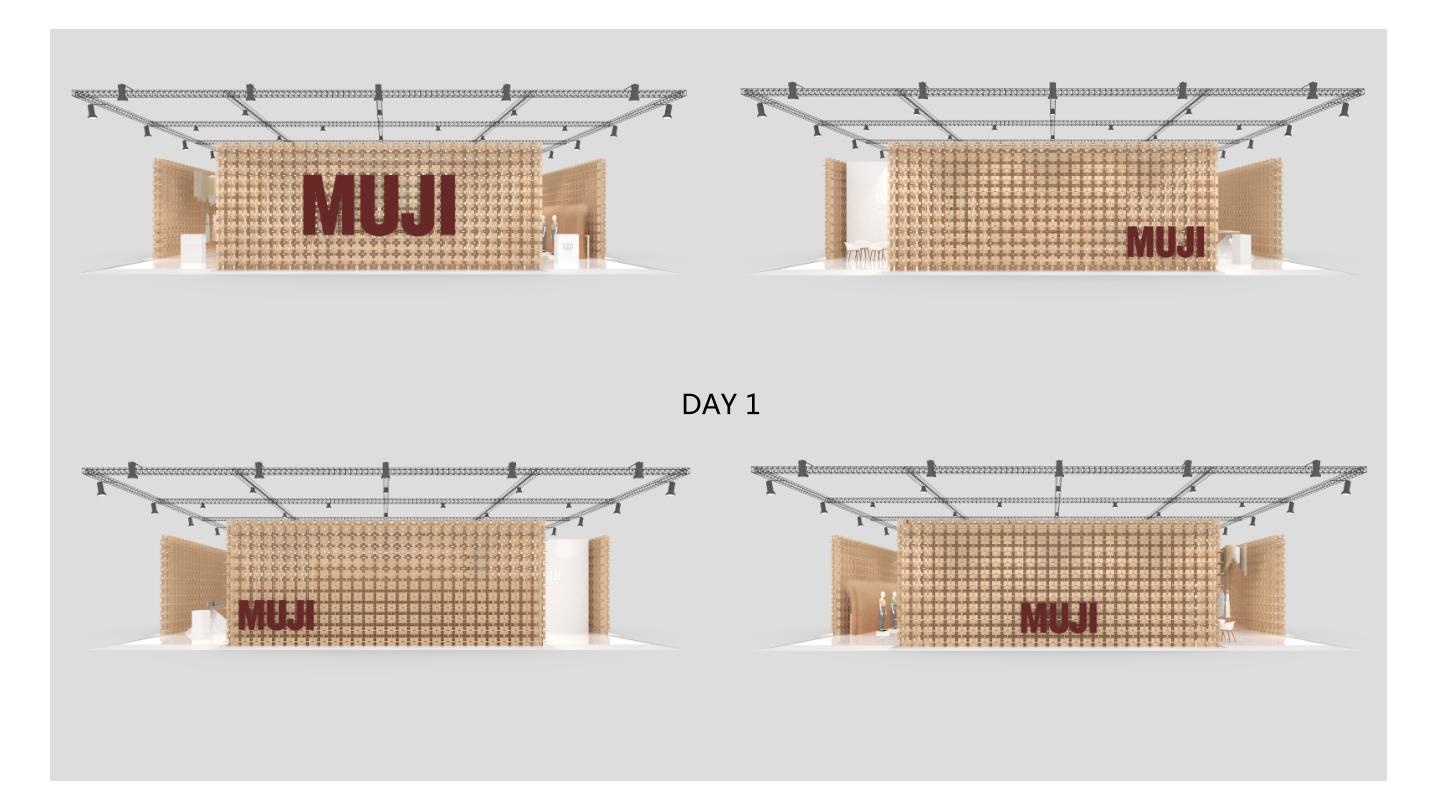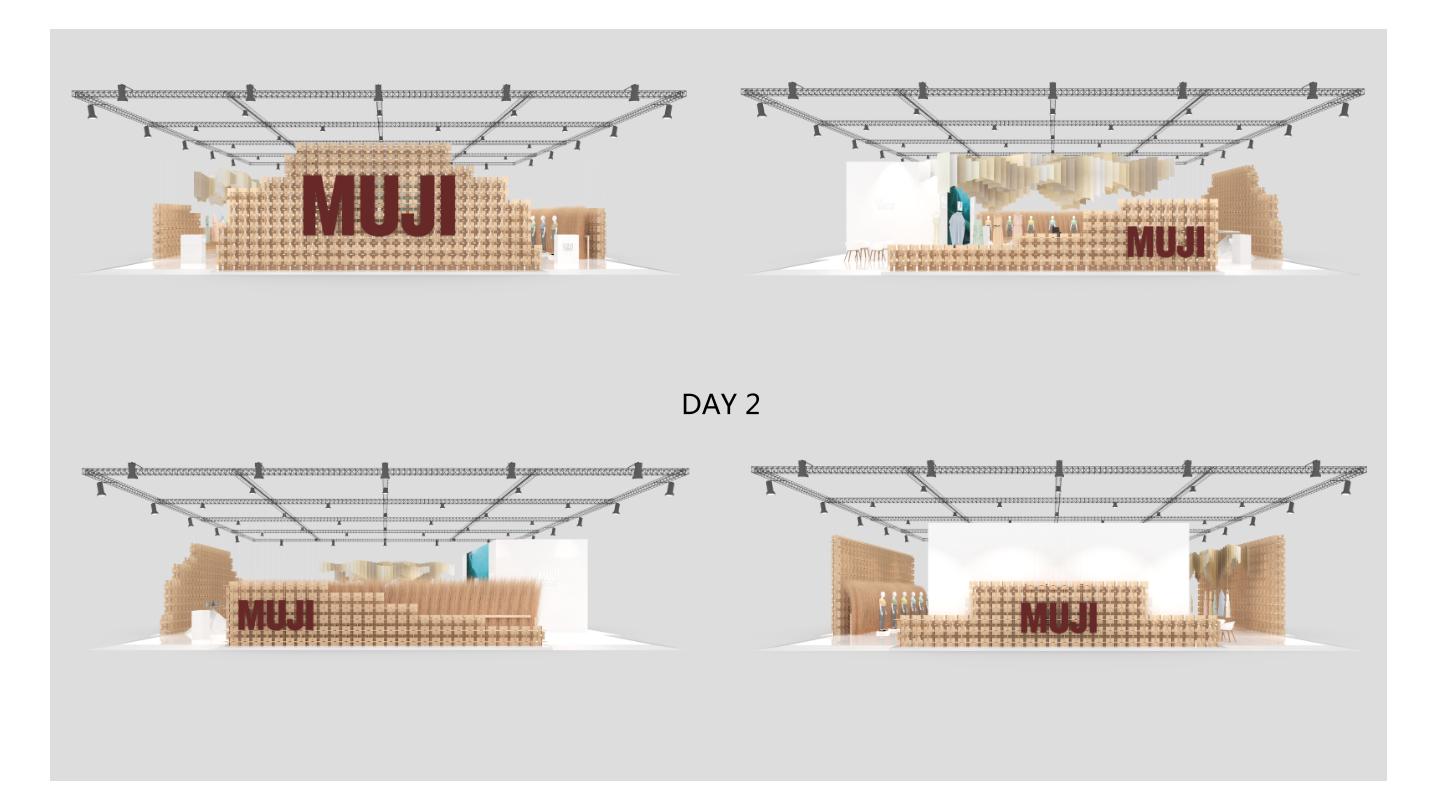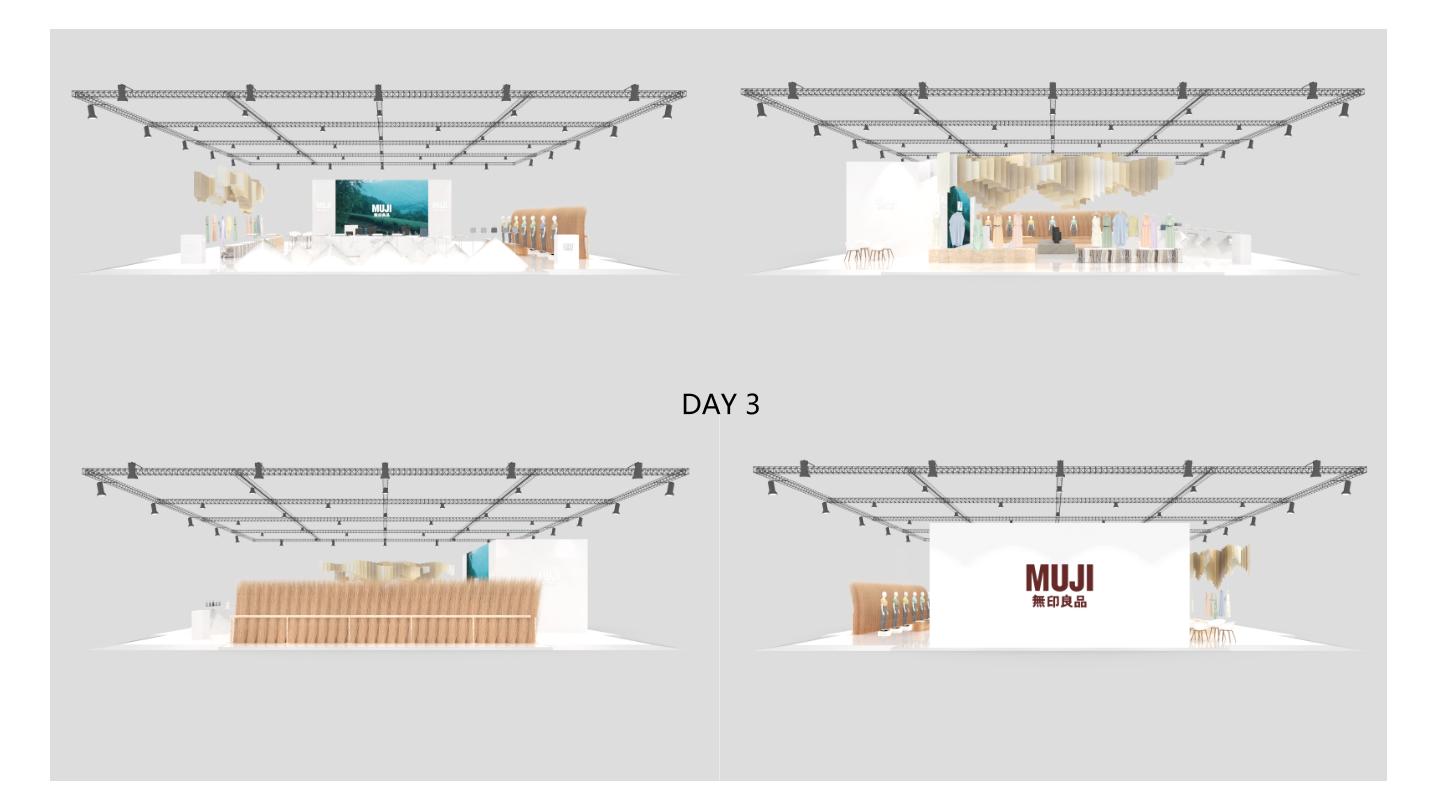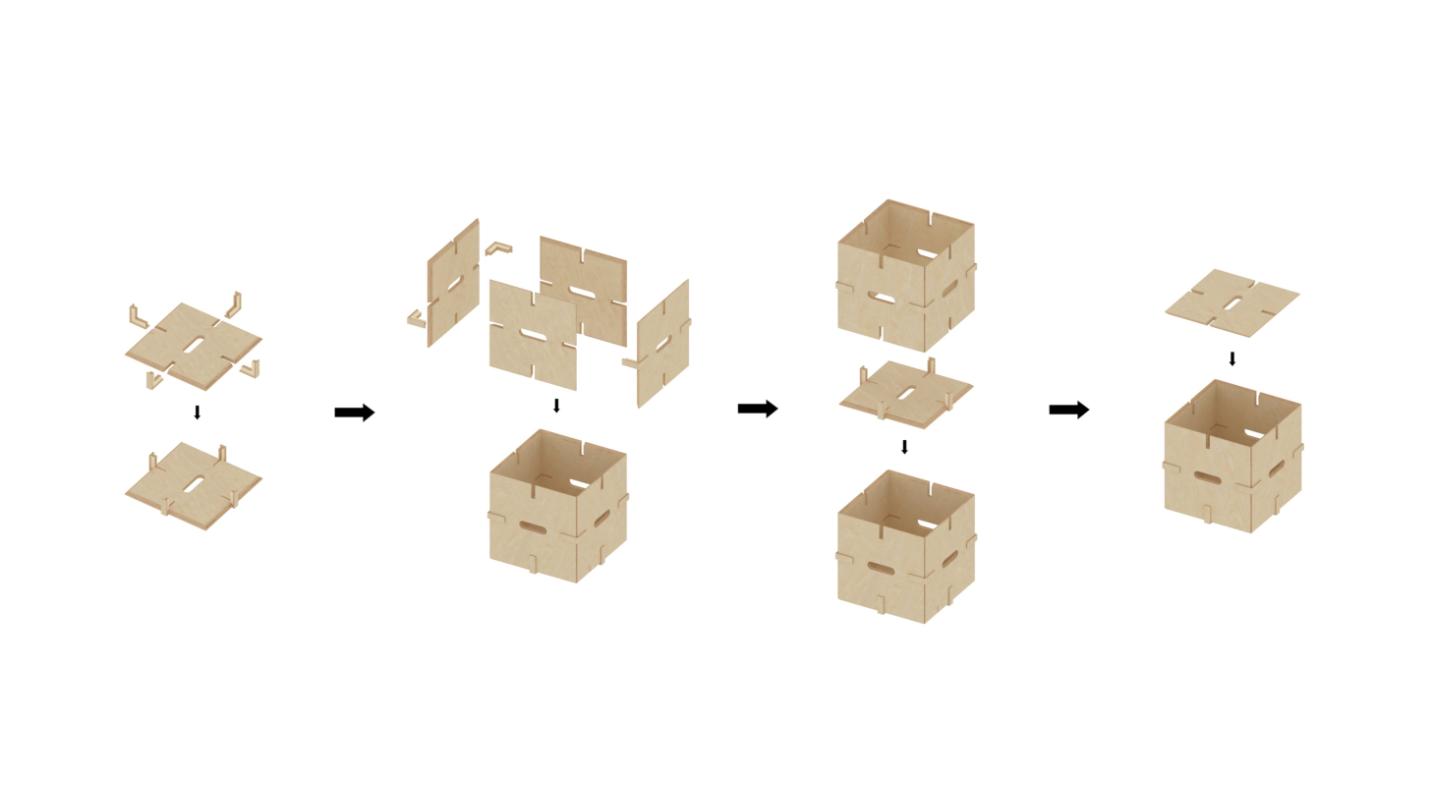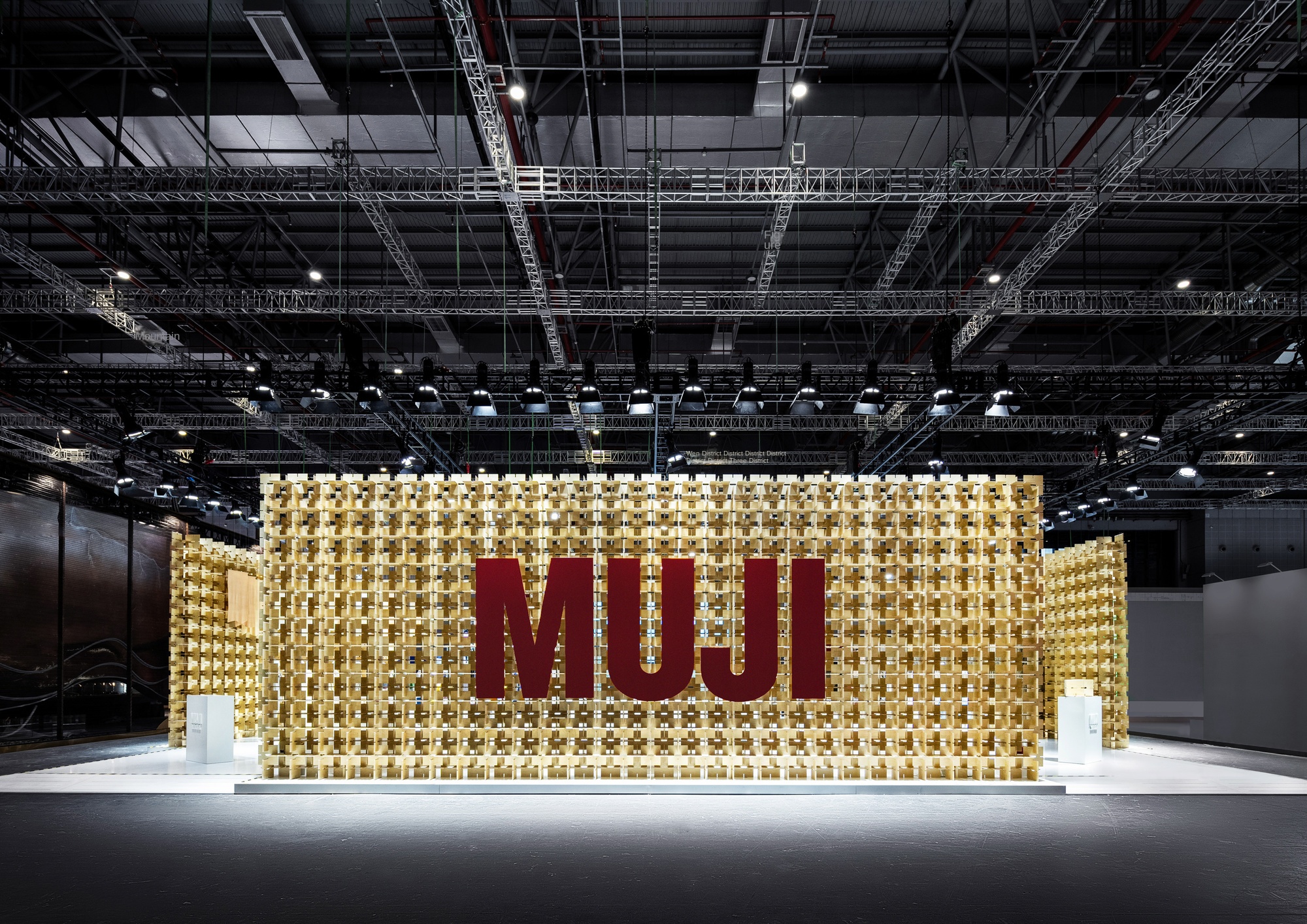
First day of exhibition
During the 2023 China International Import Expo, a pavilion composed of 7524 pieces of wooden components was specially designed. This is a natural, natural and unprinted pavilion dedicated to MUJI.
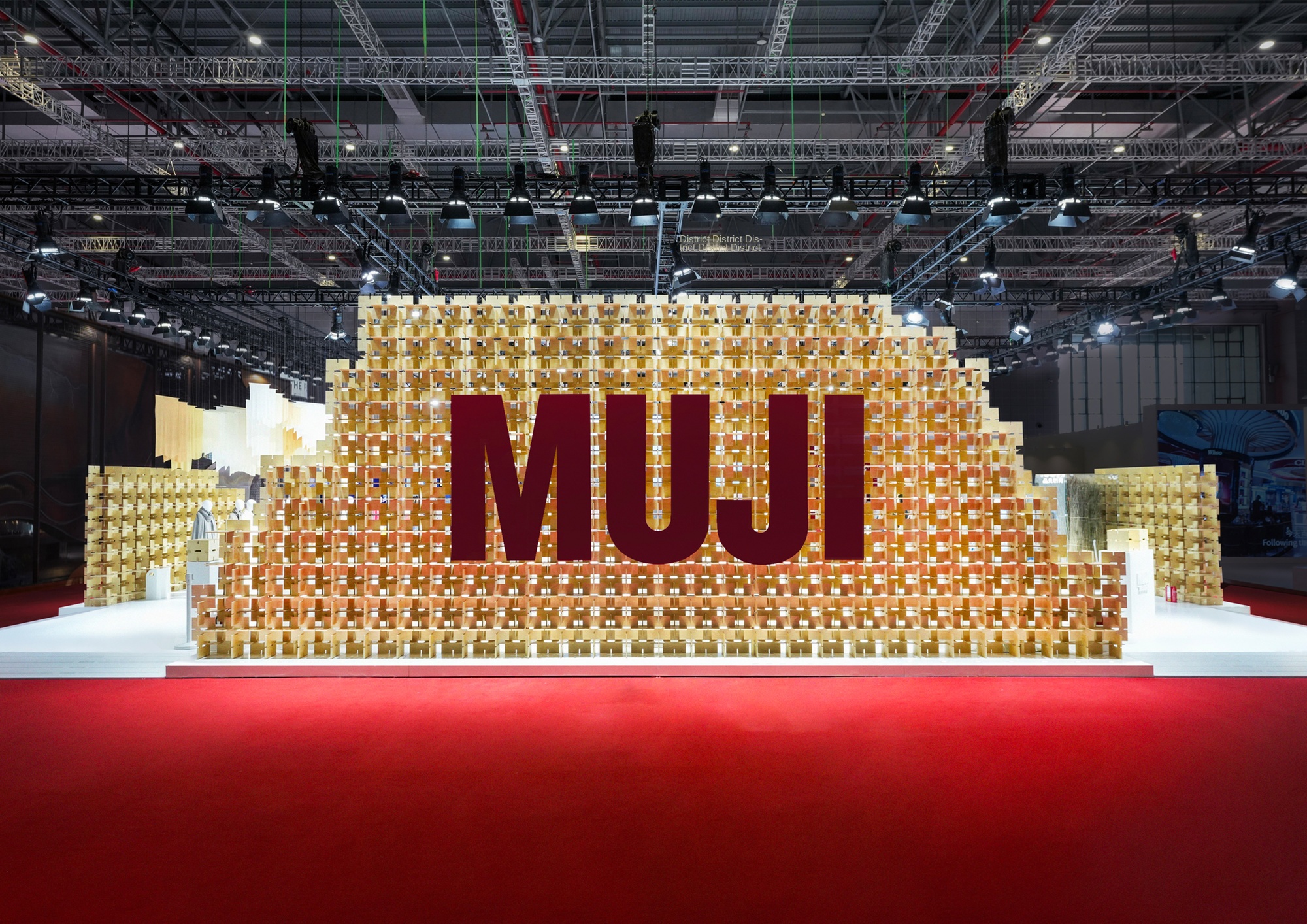
Exhibition Day
During the 6-day exhibition, the exhibition hall went from there to nothing.
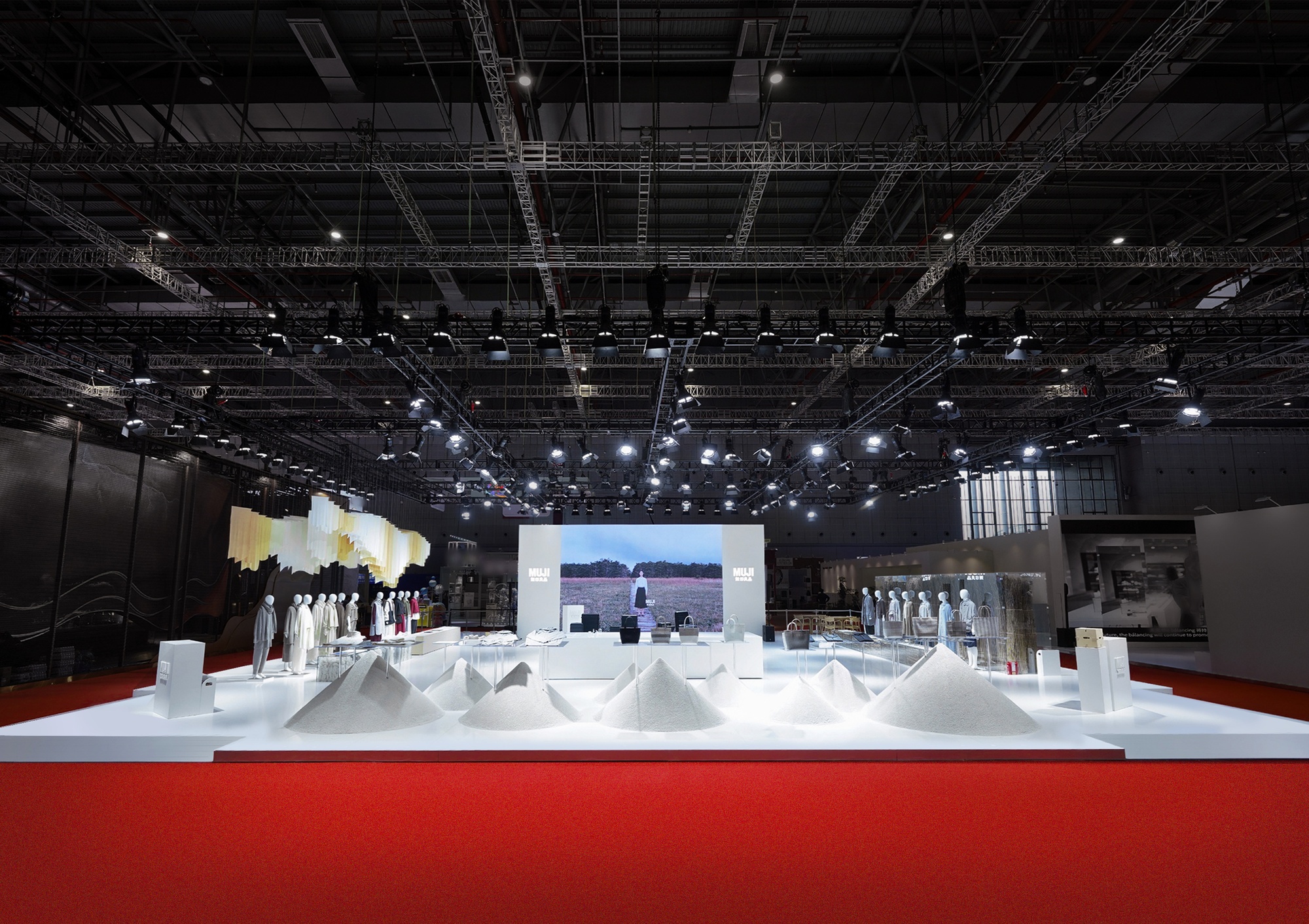
Exhibition Day
During the 6-day exhibition, the exhibition hall went from there to nothing.
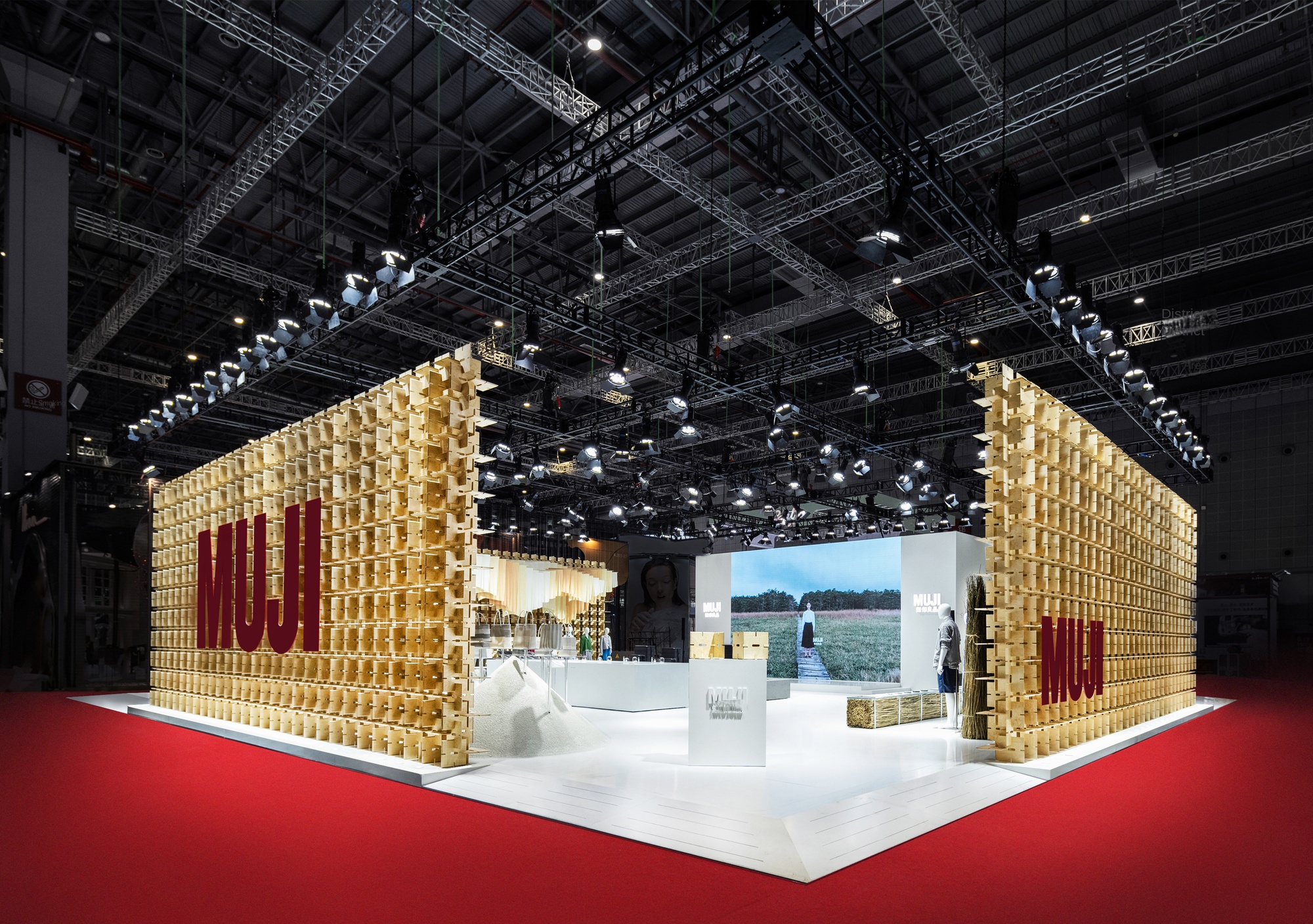
Panoramic view of the Museum of No Seal
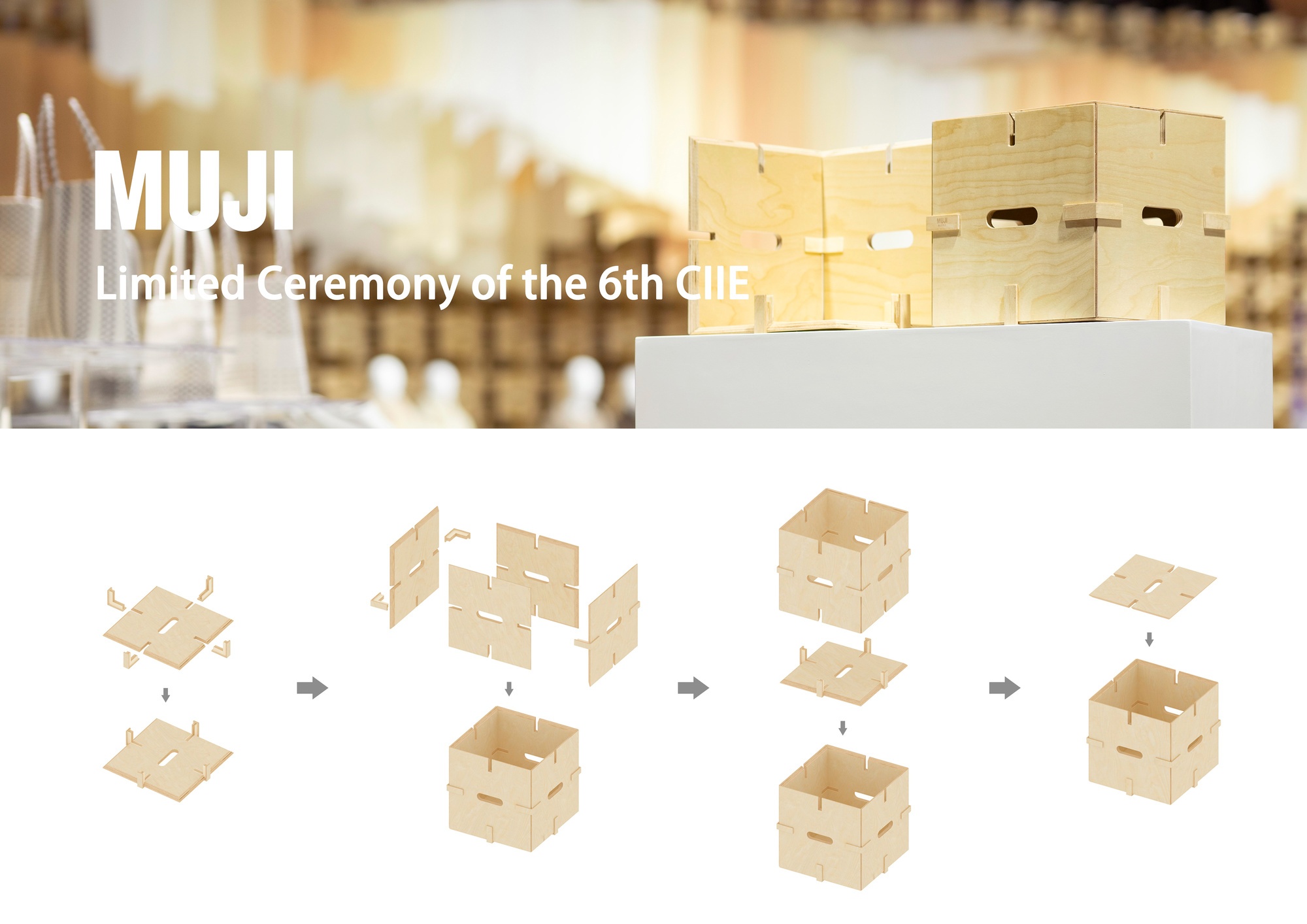
Storage system for home use
During the exhibition period, the exhibition hall was packaged and taken away by 1254 visitors who visited MUJI's Muyin Pavilion. The disassembled wooden components of the exhibition hall will be reassembled into a set of storage system that can be used at home and is consistent with the size of MUJI's original furniture cabinet.
Unprinted Pavilion-Wooden Storage System
Construction process
Dismantling process
During the 2023 China International Import Expo, a pavilion composed of 7524 pieces of wooden components was specially designed. This is a natural, natural and unprinted pavilion dedicated to MUJI.
During the 6-day exhibition, 1254 visitors to MUJI's Muji Pavilion packaged and took away the screen system we designed. The disassembled wooden components of the exhibition hall will be reassembled into a storage system that can be used at home and is consistent with the size of MUJI's original furniture cabinet. Every participating audience will become the co-creator of this project and bring the concept of sustainability into their lives. The design of this group of storage systems also implements MUJI's brand concept of "natural, of course, no printing" in the exhibition industry with extremely serious waste of resources.
MUJI MUJI's "minimalist" belief is not simply to remove superfluous decorations for simplicity in appearance, but to create an ultimate "emptiness", which is pure without any restrictions on the use method and product image. Emptiness is an infinite freedom. An emptied pavilion can lead to an infinitely groundbreaking good life. We thank everyone who participated in the exhibition to help us complete the new concept MUJI environmental protection pavilion.
The design of the Museum of the Unprinted, in the Chinese exhibition industry, is a rare practice of the concept of sustainable design in terms of design, structural production, construction, and disassembly. It is not only for the use of environmentally friendly materials and natural materials, but also allows regular exhibitions to think about how to make normalized construction materials exist in a new way at the beginning of the design, let the construction waste "turning waste into treasure" become the audience's daily life storage supplies.
The main design materials of the Museum of No Printing are wood that meets environmental protection standards, marine recycled plastics, degradable crop raw materials, and reusable metals. The wooden component wall of the exhibition hall was packaged and taken away by 1254 visitors to MUJI's Muji Pavilion. The disassembled wooden components of the exhibition hall will be reassembled into a set of storage system that can be used at home and match the size of MUJI's original furniture cabinet. Every participating audience will become the co-creator of this project and bring the concept of sustainability into their lives. The design of this group of storage systems also implements MUJI's brand concept of "natural, of course, no printing" in the exhibition industry with extremely serious waste of resources.
The Fourth Force Art Collective (Atelier FORTH FORCE), as the core art label of Shanghai Tangen Culture Communication Co., Ltd., is an art aesthetics organization initiated and founded by Sun Chenzhu in 2018, which is good at integrating multiple media and takes design-driven as its core. The team focuses on the cross-field practice of art and design, based on contemporary thinking, and absorbs the nutrients of the times, shaping content, events, exhibitions, and projects with multiple cultural values. Its core members He Wenqin, Li Qiong, Lan Zi, etc.
